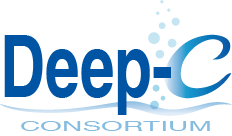Job Opportunities
Multidisciplinary Initiative in Coastal and Marine Research
The President and the Provost of the Florida State University (FSU) are pleased to announce a major initiative to develop a multidisciplinary group studying the short- and long-term dynamics of coastal ecosystems, especially with respect to the interconnectivity among biotic and abiotic components of terrestrial and marine environments. This strategic effort seeks to recruit as many as nine tenure-track/tenured faculty, open with respect to rank. Faculty will have academic appointments in either the Department of Earth, Ocean and Atmospheric Science (EOAS) or the Department of Biological Science. Some of the new faculty hires can be based at the FSU Coastal and Marine Laboratory (FSUCML).
Successful candidates are expected to interact synergistically with research programs in departments and interdisciplinary programs across the University, as well as develop new areas of interactions through research and graduate and undergraduate teaching. The sustained pursuit and growth of collaborative, externally-funded research programs are explicit goals of this initiative.
This is a very broad search and we encourage applications from candidates trained in the physical and life sciences who work on subjects related to coastal and marine systems.
Areas of interest include, but are not limited to, ecosystem or community ecology, conservation biology, invertebrate/benthic ecology, plant or algal ecology, fisheries biology, marine mammalogy, (bio) geochemistry, geology, climatology, hydrology, shelf circulation processes and biotic/abiotic system modeling.
Successful candidates will be offered highly competitive salaries and start-up packages as well as access to state-of-the-art research space, instrumentation, high performance computing and other facilities. Faculty are expected to complement existing coastal and marine ecosystem research in EOAS, Biological Science and FSUCML, with the potential to interact with the Center for Ocean-Atmospheric Prediction Studies and the Geophysical Fluid Dynamics Institute. Further resources and support are available through existing programs with other institutions, including the Florida Climate Institute, the Deep-CConsortium and the National Estuarine Research Reserve System.
FSU is located in Tallahassee, the capital of Florida, within close proximity to flood plain, river and estuarine habitats. The nearby coast includes a mosaic of habitats ranging from oyster reefs to sea grass meadows, from freshwater bogs to salt marshes, with ready access to near shore sponge reefs and offshore drowned patch reefs. Faculty will have access to FSUCML's new 65 foot RV Apalachee and two larger vessels through the Florida Institute of Oceanography. The University boasts a broad range of specialized research facilities including those in geochemistry at the National High Magnetic Field Laboratoryand high performance computing in the Research Computing Center.
Applicants should provide a letter of application, full curriculum vitae, the names and contact information of three professional references and a two-page narrative describing their research interests that should include a statement as to how the candidate would complement this multidisciplinary effort at Florida State University. Application documents must be combined into a single PDF file and sent electronically. Review of applications and nominations will begin November 15, 2013.
Questions about this search should be directed to Dr. Janet Kistner, Associate Vice President for Academic Affairs or Dr. W. Ross Ellington, Associate Vice President for Research.
Florida State University is committed to the diversity of its faculty, staff, and students, and to sustaining a work and learning environment that is inclusive. Women, minorities, and people with disabilities are encouraged to apply. FSU is an Equal Opportunity/Access/Affirmative Action Employer.
Deep-C was a four-year, interdisciplinary study of deep sea to coast connectivity in the northeastern Gulf of Mexico.Deep-C is no longer an active research project. The information on this website is for historical reference purposes only.
Home | About Us | Research Areas | Data Center | News & Multimedia | Education & Outreach
© Deep-C Consortium. All Rights Reserved.
This research was made possible by a grant fromThe Gulf of Mexico Research Initiative (GoMRI).
Copyright | Disclaimer | Privacy Policy
